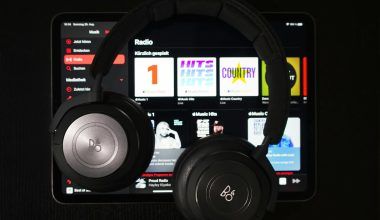In the highly competitive world of music, having a standout music industry resume is essential for getting noticed by potential employers and collaborators. Whether you’re an aspiring musician, a seasoned producer, a behind-the-scenes manager, or involved in any other aspect of the music industry, a well-crafted resume can be your ticket to new opportunities. This comprehensive guide will walk you through the crucial elements of a music industry resume, providing music industry resume samples to help you effectively present your experiences and skills.
Understanding the Importance of a Music Industry Resume
A music industry resume is not just a standard CV; it must reflect your creativity, passion, and professionalism. The music industry values originality and innovation, and your resume should capture these qualities. It’s not only a document listing your past experiences but also a showcase of your unique talents and accomplishments. A compelling resume can make the difference between landing an audition, a job, or a collaboration and being overlooked.
Key Elements of a Music Industry Resume
- Contact Information: Include your full name, professional title, phone number, email address, and relevant social media profiles. If you have a professional website or portfolio, link to it.
- Objective Statement: This brief summary should highlight your career goals and the value you bring to a potential employer or collaborator. Tailor this statement to each job you apply for.
- Professional Experience: List your work experiences in reverse chronological order. Focus on positions relevant to the music industry and describe your achievements and contributions in each role.
- Skills: Highlight your technical abilities, musical talents, and any other relevant skills. Be specific about the software and equipment you’re proficient in.
- Education: Mention your educational background, particularly any music-related degrees, courses, or certifications.
- Awards and Recognitions: List any awards or honors you’ve received, especially those that highlight your achievements in the music industry.
- References: Include references from industry professionals who can vouch for your skills and experience.
Crafting a Music Industry Resume Sample
Creating an effective music industry resume sample requires more than just listing your work history. It involves presenting your career in a way that highlights your strengths and fits the job you’re targeting. Here’s a detailed breakdown of how to structure your resume:
1. Contact Information
Your contact information should be straightforward and professional. Here’s an example:
scssCopy codeJohn Doe
Music Producer
(123) 456-7890
john.doe@example.com
www.johndoemusic.com
LinkedIn: linkedin.com/in/johndoe
Instagram: @johndoe
2. Objective Statement
Your objective statement should be a brief, powerful introduction to your resume. Tailor it to the specific role you’re applying for, as shown in this example:
cssCopy code"Experienced music producer with over a decade in the industry, specializing in hip-hop and electronic music. Adept at both live and studio production, with a track record of delivering high-quality projects on time. Seeking to leverage my skills in a creative and dynamic environment to contribute to innovative music productions."
3. Professional Experience
When listing your professional experience, focus on roles that highlight your skills and achievements in the music industry. Use action verbs to start each bullet point and quantify your accomplishments when possible.
diffCopy codeMusic Producer | XYZ Music Studio | January 2018 - Present
- Produced over 100 tracks for diverse artists, resulting in over 5 million streams across platforms.
- Managed all aspects of recording sessions, including mixing, mastering, and coordinating with artists and session musicians.
- Developed unique sound design techniques that increased client satisfaction by 30%.
Assistant Sound Engineer | ABC Records | June 2015 - December 2017
- Assisted in the production of several successful albums, ensuring high-quality sound through meticulous editing and mixing.
- Collaborated with producers and artists to refine their sound, contributing to the success of multiple chart-topping singles.
- Provided technical support during live recordings, ensuring seamless performance and high-quality audio output.
4. Skills
Highlight a mix of technical and soft skills that are relevant to the music industry. Be specific about the tools and techniques you’re familiar with.
diffCopy code- Advanced proficiency in Pro Tools, Logic Pro X, and Ableton Live
- Skilled in sound design, audio engineering, and mixing
- Strong understanding of music theory and composition
- Excellent communication and collaboration skills
- Experience with project management and client relations
5. Education
Your educational background should emphasize any formal training in music or related fields. List your highest degree first.
mathematicaCopy codeBachelor of Music | University of Music Arts | 2011 - 2015
- Major in Music Production and Sound Engineering
- Relevant coursework: Audio Production, Sound Design, Music Theory, Composition
6. Awards and Recognitions
Include any awards or recognitions that showcase your achievements and contributions to the music industry.
diffCopy code- Best Music Producer Award | National Music Awards 2020
- Top Sound Engineer | ABC Records 2017
- Excellence in Music Production | XYZ Music Festival 2019
7. References
Provide references from respected professionals in the music industry who can speak to your abilities and experience.
javaCopy codeJane Smith
Senior Producer, XYZ Music Studio
(987) 654-3210
jane.smith@example.com
Tips for Creating a Standout Music Industry Resume
- Tailor Your Resume for Each Job: Customize your resume for each position you apply for. Highlight the most relevant experiences and skills that match the job description.
- Use Action Words: Start each bullet point with strong action verbs like “produced,” “managed,” “developed,” “engineered,” etc., to emphasize your accomplishments and impact.
- Be Concise but Detailed: While it’s essential to include all relevant information, keep your resume concise and focused. Avoid long paragraphs and use bullet points to make your resume easy to read.
- Showcase Your Creativity: The music industry values creativity and innovation. Let your unique style and personality shine through in your resume. Include links to your portfolio or demo reel if applicable.
- Include Relevant Links: Provide links to your professional website, social media profiles, or portfolio where potential employers can view your work and get a sense of your artistic vision.
- Proofread: Ensure there are no grammatical errors or typos in your resume. A polished resume reflects your professionalism and attention to detail.
Frequently Asked Questions (FAQs)
What should I include in a music industry resume?
A music industry resume should include your contact information, an objective statement, professional experience, skills, education, awards, and references. Tailor each section to highlight your most relevant and impressive qualifications.
How can I make my music industry resume stand out?
To make your music industry resume stand out, focus on showcasing your unique skills, experiences, and achievements. Use specific examples, include links to your work, and tailor your resume for each application. Highlight any notable projects, collaborations, or awards.
Should I include a cover letter with my music industry resume?
Yes, including a cover letter is highly recommended. A cover letter allows you to provide additional context about your experiences and express your enthusiasm for the position. It can also highlight your unique qualifications and explain why you’re the perfect fit for the job.
How do I list freelance or gig work on my resume?
When listing freelance or gig work, include it under a separate section titled “Freelance Experience” or “Gig Work.” Provide specific details about the projects you’ve worked on, including the clients you’ve worked with, the roles you’ve filled, and the outcomes of your work.
Yes, you can include non-music-related jobs, especially if they helped develop transferable skills relevant to the music industry. For example, customer service experience can demonstrate strong communication skills, while project management roles can showcase organizational abilities.
Conclusion
Creating a compelling music industry resume is a vital step in advancing your career in the music world. By following the guidelines and tips provided in this comprehensive guide, you can craft a resume that effectively showcases your talents and experiences. Remember to tailor your resume for each application, highlight your unique skills, and present yourself professionally. With a well-crafted resume, you’ll be better positioned to seize exciting opportunities in the music industry.
For further reading, explore these related articles:
- The Evolution and Future of Music Industry Revenue
- What Does a Music Portfolio Consist Of? Beginners Edit
For additional resources on music marketing and distribution, visit Deliver My Tune.






